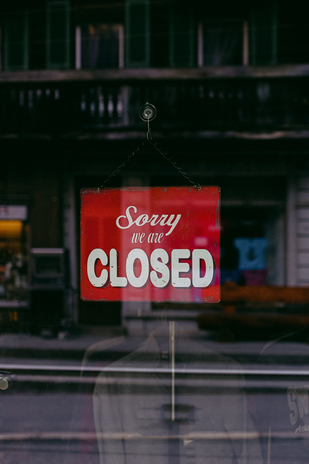It is a “well-known fact” that women have the tendency to apologize too much. Consequently, women are often told to stop apologizing so frequently, especially in the workplace where women are encouraged to be as assertive or confident as their male peers. And so, ‘sorry’ is often treated as a dirty word by self-help books and advice columns. Is it time to start questioning this ubiquitous message?
Much like the mythical idea that women speak double or triple the amount that men do, the concept of women over-apologizing has been popularly accepted despite an absence of much scientific study. “We all know that women apologize more than men,” begins one article, before linking to a study which, in fact, calls this statement into question. But, there is some evidence to suggest that women feel the need to apologize more than men. A recent study found that men and women apologized 80% of the time when they believed an apology was justified, but that men believed an apology was justified much less frequently. As a result, they apologized less often. There is nothing inherently right or wrong about either of these perceptions. But it would make just as much sense to deduce that men should apologize more than it does to argue that women must be overestimating the need to apologize.
The idea that women must be cured of their chronic apologizing has generated an enormous number of articles, think-pieces and even an app dedicated to stopping the sorry epidemic. In 2014, Pantene ran an ad campaign encouraging women to be more forthright in the workplace, all while swinging a shiny professional ponytail of hair. Women are consistently criticized for undermining themselves at work and encouraged to adopt different ways of speaking and writing.
But is there more to this story? Should we accept at face value the idea that just because women seem to apologize more than men, that must mean that women are apologizing too much? Should we commit time and effort to changing our words to match those of men? Well I’m sorry, but I think it’s time to stop being sorry for saying sorry.
First up, it’s clear that apologizing has a lot of value. Apologies can help repair relationships, show that you care about people’s feelings, improve mental wellbeing, validate others, show respect and empathy, and make for more respectful and healthy social environments. Psychotherapist Beverly Engel notes that apologizing ‘is one of the healthiest, most positive actions we can ever take – for ourselves, the other person, and the relationship.’
But what about smaller-scale situations, when no one has done anything terribly wrong and no relationships have been broken, but when many women and some men still choose to apologize? Especially in the English language (and, incidentally, in Japanese), the word ‘sorry’ serves as a valuable social lubricant. It’s one of the linguistic habits which make comments like ‘move out of the way’ or ‘I can’t come’ sound more polite and considerate, and smooth over uncomfortable moments. Imagine bumping into someone on a busy street. Both people might quickly say ‘sorry!’. It’s understood that neither person is expressing sincere guilt, but the brief apologies smooth over an otherwise awkward or annoying interaction. On the other hand, when your apology is not met with another, you might be left offended or annoyed. Sure, it’s not always the right time to apologize, and it’s a good idea to consider whether you may be denigrating your own work or ideas by apologizing for them unnecessarily, but let’s not forget the value of the word ‘sorry’.
So we can see that apologizing might be getting a bad rap. Now, let’s look more closely at the assumption that because women apologize more than men, they must be apologizing too much. Why should women be shamed for the way they apologize, and encouraged to adapt to an entrenched masculine norm in their personal and work life? Nobody is publishing think-pieces on how men are damaging their job prospects by using the wrong vocabulary or intonation. By contrast, women are constantly told to change the way they express themselves, whether that’s by not using the word ‘just’ or using less body language. Linguist Deborah Cameron argues that telling women to change their communication style has a lot in common with injunctions to women to change their physical appearance and dress according to unrealistic standards.
There’s one more problem with telling women to stop saying sorry; women acting more like men in the workplace does not automatically translate to being treated more like men. Even if you succeed in getting rid of your stereotypically feminine ways of speaking and acting, like apologizing or allowing interruptions, you risk being cast as ‘bossy’ or ‘abrasive’. It’s a difficult balance which every woman finds a different way to strike. But telling us that the solution to being overlooked at work is to act like men ignores bigger problems about gender inequality which won’t be solved by forcing a change in how we express ourselves. Maybe the problem is not the way women speak, but the way women’s language is so often pathologized and controlled.


